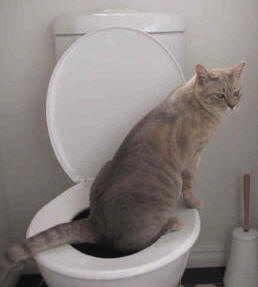Our Relevance of Proper Disposal of Animal Waste
Our Relevance of Proper Disposal of Animal Waste
Blog Article
This great article down the page on the subject of 10 Things You Should Never Flush Down The Toilet is seriously entertaining. Give it a try and make your own assumptions.

When it comes to taking care of waste, particularly animal waste, many people frequently turn to the practical choice of flushing it down the bathroom. Nevertheless, this seemingly easy service can have serious effects for the environment and public health. In this post, we'll check out why flushing animal waste down the bathroom is a negative idea and offer alternate approaches for correct disposal.
Intro
Proper waste disposal is crucial for maintaining environmental sustainability and public health. While it may seem safe to purge animal waste down the commode, it can bring about numerous problems, both for the setting and human wellness.
Risks of flushing animal waste
Ecological impact
Purging animal waste introduces unsafe bacteria and pathogens into waterways, which can negatively influence water environments. These virus can pollute water resources and damage marine life, interfering with fragile communities.
Public health worries
Pet waste consists of damaging germs such as E. coli and Salmonella, which can present significant wellness dangers to human beings. Flushing animal waste down the toilet can contaminate water products, causing the spread of diseases and infections.
Alternatives to flushing
As opposed to purging animal waste down the bathroom, there are several alternate disposal approaches that are more environmentally friendly and sanitary.
Composting
Composting animal waste is an environment-friendly method to dispose of it. By composting, organic matter is broken down into nutrient-rich dirt, which can be utilized to fertilize yards and plants.
Land fill disposal
Taking care of pet waste in a land fill is one more alternative. While not as eco-friendly as composting, it is a safer option to flushing, as it stops the contamination of water resources.
Family pet waste disposal systems
There are specific pet dog waste disposal systems readily available that safely and hygienically get rid of pet waste. These systems usually use enzymes to break down waste and eliminate odors.
Steps to proper animal waste disposal
To guarantee appropriate disposal of animal waste, follow these actions:
Scooping and getting waste
Routinely scoop and bag animal waste utilizing biodegradable bags. This avoids waste from contaminating the atmosphere.
Utilizing assigned waste containers
Dispose of bagged pet waste in assigned waste bins, such as garden compost bins or land fill bins. Stay clear of flushing it down the toilet whatsoever expenses.
Cleaning up can and pet areas routinely
Frequently tidy can and family pet locations to stop the buildup of waste and bacteria. Use pet-safe cleansing items to maintain health.
Benefits of correct disposal techniques
Adopting correct disposal methods for animal waste provides numerous benefits:
Minimized environmental pollution
Appropriate disposal approaches reduce the threat of environmental pollution, protecting waterways and ecological communities from read more contamination
Lessened threat of water contamination.
By preventing flushing pet waste down the toilet, the risk of water contamination is dramatically minimized, guarding public health.
Improved sanitation and health
Appropriate disposal approaches promote far better hygiene and health, developing a safer atmosphere for both people and pets.
Conclusion
In conclusion, purging animal waste down the commode is unsafe to the setting and public health. By adopting different disposal techniques and complying with proper waste monitoring methods, we can decrease the negative influence of pet waste and add to a cleaner, healthier earth.
What To Do With Dog Poo – The Do's And Don'ts Of Disposing Of Faeces
Dog poo bins
Some councils provide dedicated dog waste bins in popular dog-walking areas that can take dog poo that has been bagged but you can legally dispose of dog waste in any public litter bin, as long as it is securely bagged. This also applies to your wheelie bin at home.
Do not flush
Water companies do not recommend flushing dog faeces down the toilet because certain parasites can survive the water processing treatment and are potentially harmful to humans. You should also never consider flushing dog poo that has been bagged down the toilet as the bags will not break down and instead create severe blockages in the sewage system.
In the woods
The Forestry Commission promotes a ‘stick and flick’ method for dealing with waste in the woods. This means finding a stick and using it to flick any poo from off the path so that it is out of the way of other walkers. You could also bury it as long as it is not in an area where there might be livestock.
Livestock
Parasites found in dog poo can be transmitted to livestock if they inadvertently eat infected faeces that has been left on grazing land. This could result in the death of sheep or abortion in cattle so you should always make sure you pick up your dog’s waste in fields where livestock could be present.

Hopefully you enjoyed our part about Why you should never flush dog poop down the toilet. Thanks so much for finding the time to browse our blog. Are you aware of another individual who is in to ? Feel free to share it. I treasure your readership.
Need Help? Hire Us Now! Report this page